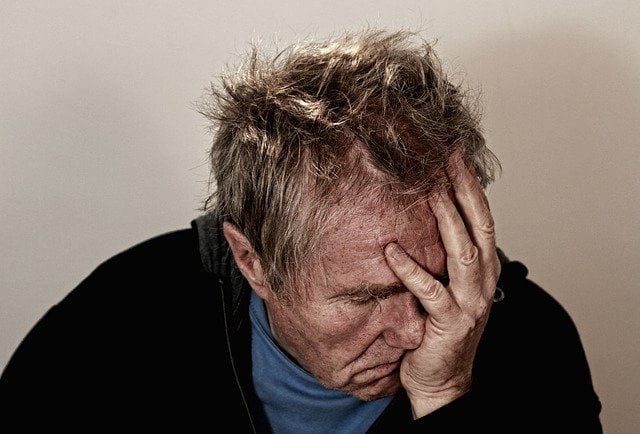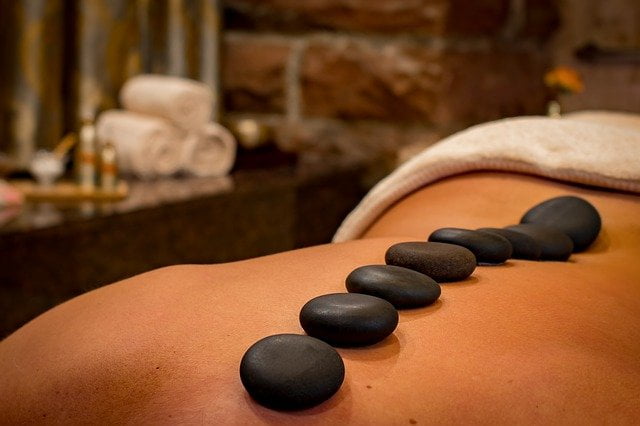Drug & Alcohol Rehab Essex & Near Essex
Quick Links for help with addiction in Essex and near Essex
- What Are The Signs That An Alcohol Addiction Is Present?
- What is Drug and Alcohol Rehab in Essex Like?
- How Can I Convince a Loved One to Receive Drug and Alcohol Rehab in Essex?
- Tips For Choosing the Right Drug and Alcohol Rehab in Essex
- How Much Does Drug and Alcohol Rehab Cost in Essex?
- How Long Does Drug and Alcohol Rehab in Essex Last?
- Rehab for Cocaine in Essex
- Rehab for Heroin in Essex
- Rehab for Cannabis in Essex
- What Does a Typical Day in Rehab Look Like?
- What Happens After Rehab in Essex?
- Frequently Asked Questions About Drug And Alcohol Rehab In Essex
Are you struggling with your drug or alcohol addiction and looking for a light in the darkness? At Rehab Recovery, we offer bespoke specialist services for detox & drug alcohol rehab Essex for all your individual needs.
If you have undergone addiction treatment before and failed, we are here to inject you with the hope that what we have to offer really is going to be a game-changer in terms of your recovery.
We offer you a step-by-step and well-defined system whereby others have risen above their addiction to live a long and happy life in recovery. And you can too.
During your rehabilitation programme, you will begin to turn the tide of life back in your favour. This will require hard work on your behalf.
We believe that drug alcohol rehab Essex will immediately contribute to your long-term recovery goals [1].
We believe this treatment will do for you what no other treatment is able to do. It gives you a step-by-step system for overcoming the reasons behind your addiction so you may continue to live your life in sobriety.
How Do I Know When My Addiction is Something to Worry About?

Millions of people need drug or alcohol abuse treatment. However, there are only a small fraction of those people will seek out the help that they need and follow through with treatment.
Most won’t seek treatment because they are ashamed or don’t think that they can afford it.
How Do I Know If I Need Drug and Alcohol Rehab in Essex?
1. You haven’t been truthful about your use
Maybe you think that it’s no one’s business but yours about how much you consume, but if you must hide your use from anyone then it’s a sign that you have a problem. Lying about how much, you use means that you no longer have control.
2. You are experiencing health issues because of your substance abuse
Abusing a substance has negative health connotations but physical changes as a result of substance abuse are a warning sign that you need to get help. Physical issues are not always immediately apparent, but by the time they are noticeable, it is time to consider rehab.
3. Family and friends advise you that you should get help
If friends or family have tried to speak to you about their concerns regarding your substance abuse it is a definite sign that you have a problem. No one wants to hear that they have a problem and being told this can make them feel shameful, but it can motivate someone to get the help that they need.
4. You can’t quit on your own
You may have tried to quit substance abuse but have not been able to stay away from it. Admitting that you have an issue and then trying to abstain from using a substance is not enough because the temptation can be too much, and the process of quitting cold-turkey can be dangerous [2].
6. You have been in trouble with the law regarding your substance abuse
If you have been involved with police because of your substance abuse this is an indication that you have no control over your behaviour and need professional treatment [3]. This is a good time to deal with your problem instead of ignoring it before you end up in court.
6. Your work is suffering
Addiction can develop into a serious issue and it will have an effect on other aspects of your life too. If you are having problems with work such as being late, not showing up or using at lunch, it’s a sign that you need help.
7. Using is more important than anything else in your life
When you start to choose using over any of your interests or anything else in your life, this should be a sign that you need help. This means that you have a serious dependence and you are giving it priority over everything.
8. You start relying on that substance to help you through your day
Most substance abuse issues begin with occasional substance abuse with the user thinking that they have control over how much they are using. As addiction progresses, the user starts to rely more on that substance to help them get through their day. This is an indication that the addiction is out of control.
What Impact Can Drug and Alcohol Addictions Have on Families in Essex?
Substance abuse problems can create rifts between you and those you care about and can cause strain on relationships.
People who have addictions tend to get into arguments with those that they care about. If you find that your relationships are strained with those that are close to you this is a sign that you need rehab.
Most substance users don’t believe that their addiction will have a negative impact on anyone, but that is not true.
What happens is that they end up choosing substance use over anything else in their life and miss out on important life events that may never happen again.
Below, we provide some statistics about alcohol and drug use and its effect on crime in Essex:
| Drug and Alcohol Statistics in Essex (November 2022 – October 2023) | Data | |
|
3.4 | |
| Total Number of Drug and Alcohol-Related Crimes in Essex | 5,400 | |
| Drug and Alcohol Crime Percentage of All Crimes | 3.1% | |
| Yearly Increase in Drug and Alcohol Crimes in Essex | 5.4% |
These statistics prove just how much drug and alcohol use can affect the local population in Essex.
If you’re still unsure about your suitability for addiction treatment at drug & alcohol rehab Essex or near Essex, call us on 0800 088 66 86
What Are The Signs That An Alcohol Addiction Is Present?

Alcohol addiction is a serious problem with significant long-term consequences [4].
Whether you suspect a loved one is harbouring an alcohol addiction or think you might be affected, it’s important to recognise the signs. [5]
However, it can be hard to pin down the red flags of Alcohol Use Disorder, which is why medical authorities have created a criterion of symptoms for individuals to refer to.
One such framework is the DSM-V [6] (The Diagnostic and Statistical Manual of Mental Disorders), a criteria used by healthcare professionals to help them diagnose alcohol addiction.
According to the 5th edition of the DSM-5, the primary signs of alcohol addiction are as follows:
- Impaired control: This means someone will be using more alcohol [7] than they intend to, perhaps even every day [8]. Moreover, they won’t be able to quit drinking even if they make a conscious effort to.
- Social problems: In many cases, a person’s alcohol consumption will catalyse social problems. This can include but isn’t limited to antisocial behaviour, fighting with loved ones, neglecting responsibilities, and financial insecurity.
- Risky use: This symptom can either refer to the individual drinking in dangerously high quantities, or consuming alcohol in risky environments. For example, someone may start drinking at work, at home, or in typically alcohol-free spaces. They might be exhibiting these behaviours while drinking dangerous quantities despite the risk.
- Physical dependence: When someone is physically dependent on alcohol, they’ll need to increase their intake to feel the same effects as before. What’s more, they’ll start to experience withdrawal symptoms as soon as the alcohol leaves their system, or levels drop too low.
These are just some of the signs and symptoms typically associated with alcohol addiction and, as every addiction is different and can vary in its severity [9], these signs can vary as well.
For example, a typical type one alcoholic [10] can be expected to show signs of low novelty-seeking and behavioural symptoms associated with anxiety, whereas a type two alcoholic [11] will generally show signs of high novelty-seeking and is more likely to have been exposed to addictive substances at a young age.
Similarly, whilst some people can drink every day [12] and not develop an addiction, others are far more susceptible to these conditions.
It’s also worth keeping an eye out for the typical physical consequences [13] of alcohol addiction, which can include:
- High blood pressure
- Heart disease
- Brain damage [14]
- Liver disease [15] and cirrhosis [16]
- Digestive issues
- Cancer
- A weakened immune system
- Deficiencies of various essential minerals (Calcium, iron, zinc, magnesium, etc.) [17]
These come alongside typical psychological health conditions, such as insomnia and mental health difficulties [18], with depression and personality disorders [19] showing a high correlation with alcohol addiction.
Not only can these symptoms indicate when an issue is present, but they can also let you know when it has developed to an extremely dangerous point.
This is an essential part of stopping addiction before it becomes deadly, limiting the drastic effect alcohol addiction can have on a person’s life expectancy [20].
With the right help given at the right time, some of these conditions can even be reversed [21].
Started spotting the signs of addiction in yourself or a loved one? Get the help you need from a drug and alcohol rehab Essex or near Essex, by giving us a call on 0800 088 66 86
What is Drug and Alcohol Rehab Essex Like?
What Happens When I Arrive At Alcohol Rehab in Essex?
Rehab in Essex process has four phases. First, there is the admission and assessment phase. This is the same at every treatment facility and involves meeting with professionals to discuss the options for treatments and decide which ones will work best in your case.
What is the Admissions Process Like At Alcohol Rehab In Essex?
This is how it can be guaranteed that you will have all that you need when you stay at the facility.
Any existing illnesses will be managed at the same time with medication if you have it. During your first days of treatment, you will meet with therapists and counsellors who will work with you to discover the underlying causes of your addiction issues, such as genetics, social pressure [22] or the 4-Ps (Parents, Partner, Past and Present) [23].
Your medical assessment ensures that you have all that you need to be cared for while you stay in rehab.
Phase two is the detox process which is the removal of toxic substances from your body. It is best when you undergo this phase without the need for medication, but some people prefer prescriptions to ease the symptoms of withdrawal.
You will be constantly observed by medical professionals and you will be treated with prescription medications to treat the side effects of withdrawal.
You can choose between rehab and detox, but with the rehab option, you will access therapy sessions to address your mental and physical state. Although this treatment option is longer is it also more effective.
Prescription medications can assist with painful withdrawal symptoms and treatment is offered in an understanding and respectful manner.
Trust between the patient and the team of professionals is the most important factor in successful treatment. The intended result is to keep the addiction away from the balance of your life.
You may undergo a medical exam, and psychological assessments, and be asked about your history of drug or alcohol use, family history regarding addiction, how you plan to pay for treatment, and then a plan will be crafted to suit you.
The third phase is to build a foundation for the future of your treatment. This includes treatment programs such as inpatient, outpatient, or hospitalization. Therapy is included in this treatment plan also. The fourth phase is follow-up and future plans in the event that relapse is imminent.
How Effective Is Rehab In Essex At Treating Addictions?
Rehab clinics have been stigmatised over the years, in large part because drug and alcohol addictions were misunderstood. These days, attending a rehab clinic and enrolling in a comprehensive treatment programme is considered an effective way of beating Substance Use Disorder (SUD).
Recent government statistics [24] have given some insight into the overall efficacy of rehab treatment in the UK.
Between 2020-2021, 55,308 people battling addiction completed their course of treatment, equating to around 47% of those who entered rehab.
However, it’s important to note that treatment completion isn’t necessarily the best metric for measuring efficacy. Many SUD victims will leave rehab prematurely and return or restart their recovery journey at a later date.
Moreover, some individuals will successfully graduate from rehab only to relapse at a later date and resume the treatment process.
Recovery journeys are far from linear and are often characterised by highs and lows before stable sobriety is achieved.
This means designing a personalised treatment programme for each patient, including a unique combination of therapies that target the root cause of their SUD.
This comprehensive style of treatment found in residential rehab clinics is often the most effective, as it allows people to uncover their personal relapse triggers.
If you want to learn more about what a rehab in Essex or near Essex can do for you, call our eexpert team on 0800 088 66 86
What Types of Addiction Are Treated At a Drug and Alcohol Rehab Essex?

There are many different types of addiction [25] to contend with, ranging from classic substance misuse in its many forms to all manner of behavioural addictions.
Alcohol and drug rehab in Essex can help with any addiction, such as:
- Alcohol addiction or heavy drinking [26]
- Buprenorphine addiction
- Benzodiazepine addiction
- Cannabis use disorder
- Cocaine addiction
- Crack cocaine dependence
- Heroin addiction
- Ketamine addiction
- Opioid use disorder
- Prescription drug addiction
- Behavioural addictions like gambling addiction.
Start your recovery journey at a drug and alcohol rehab in Essex or near Essex today by calling our expert team on 0800 088 66 86
What is the Disease Model of Addiction?
Some people who have not been through addiction refer to substance abuse and addiction as a ‘choice’ or a selfish action. This can come from a place of judgement, projection, or just plain ignorance.
The reality is that addiction is considered to be a disease with both physical [27] and mental symptoms [28]. There is no shame in having an addiction, but it does not to be treated and managed as soon as possible.
Rehab Recovery provides a confidential judgment-free helpline for anyone suffering from addiction. We can help you to make sense of your treatment options, and if you are ready, help you to find help at a suitable drug & alcohol rehab in Essex.
What is Alcohol Addiction in Essex?

Alcohol addiction is when a person is so dependent on alcohol that they feel they cannot stop drinking on their own. Sometimes friends, family, and other close caretakers can’t provide the level of assistance needed.
Alcohol Use Disorders Identification Test [29] or the CAGE questionnaire [30] can help identify an addiction or dependence on alcohol.
Alcohol detox requires a medically assisted detox for the severity of the alcohol withdrawal symptoms or alcohol withdrawal syndrome such as seizures or delirium tremens. Chlordiazepoxide, or brand name Librium, is used in the detox process, alongside other substances such as Acamprosate [31] and Naltrexone[32].
Detox for alcohol is important since alcohol addiction can cause any number of dangerous effects, including Wernicke-Korsakoff Syndrome. [33]
You can read more about the disease of addiction here.
Discover how a rehab in Essex can help you achieve a better life by calling us on 0800 088 66 86
What Happens During A 28-Day Rehabilitation Program In Essex?

Image above: Man receives a questionnaire at a drug and alcohol rehab in Essex
Although each individual’s experience of rehab will differ slightly, the basic structure of a 28-day programme remains the same in most cases. Knowing the standard treatment programme [34] structure can help patients know what to expect.
In the average 28-day plan, the first 7-10 days consist of a personalised detox, where the body recovers from its physical addiction.
This is usually followed by 2 weeks of intensive therapy: both individual sessions and peer support groups that are led by a counsellor.
During the two weeks of therapy, you’ll work closely with licensed addiction specialists who will help you get to the bottom of your addiction. This could mean safely exploring past trauma or treating co-occurring disorders such as mental illness or chronic pain.
One-to-one therapies usually involve communicative methods such as CBT, Motivational Enhancement, or Acceptance and Commitment Therapy.
To support your abstinence and help you learn from others, group therapy sessions involve patients discussing their lives, addictions, and recovery journeys together.
Experience treatment at a drug and alcohol rehab in Essex for yourself by giving us a call on 0800 088 66 86
What If I Suffer From Multiple Conditions Alongside Addiction?

Addiction does not exist in a vacuum – there are normally a number of other mental health conditions (as determined by the DSM-5) happening at the same time.
These could be a wide number of different conditions, but typically include [35]:
- Borderline Personality Disorder (BPD) or Anti-Social Personality Disorder (APD) [36]
- Eating disorders
- Obsessive Compulsive Disorder (OCD)
- Post-Traumatic Stress Disorder (PTSD)
- Schizophrenia
- Bipolar Disorder
- Anxiety
- Depression
Any condition like this can make an addiction much more difficult to manage, and vice versa.
You will have a psychiatric assessment that will determine what psychiatric treatment or medication you will need, if any.
This is the purpose of dual diagnosis at rehab – finding out, with the help of professionals, whether there are any other aggravating mental health conditions at play.
If there are, you will be able to have them diagnosed, assessed, and treated accordingly, which could make your addiction much easier to deal with going forward.
This may include the use of therapy, medications, or likely both – the important thing is to be able to get that condition under control.
To learn more about what addiction treatments in Essex can do to support your mental health, call us today on 0800 088 66 86
Why Does the Abstinence Model Work Best for Drug and Alcohol Rehab in Essex or near Essex?

Experts have agreed [37] that abstinence is always the safer and more effective route to addiction recovery.
Some people who have treated their addiction and been through rehab may eventually try to incorporate alcohol or drug use back into their life, perhaps starting with moderation or harm reduction [38], on an occasional basis.
Unfortunately, for the vast majority of people, this will end up with the person being back in a full-blown addiction. This is why the abstinence model is the ideal choice, giving recoverees a clear set of recovery rules to stick to. [39]
With the abstinence model of recovery, there is no grey area in this respect – either you are using, or you are not. This keeps things simple and does not leave the door open for substance abuse to come back into your life.
Will Rehab in Essex Cure Me Of My Addiction?
Although Substance Use Disorder is a treatable disease, with many people achieving a substance-free life with the right care, there isn’t a definitive cure. [40]
Akin to other chronic illnesses like asthma or heart disease, addiction cannot be cured in the sense of it ending permanently, but it can be managed successfully.
So, while entering rehab may not cure you of your addiction, it will enable you to counteract the disruptive effects that SUD has had on your brain [41].
Not only will rehab give you the tools needed to end your physical dependency (often through detox), but it will also arm you with a long-term relapse prevention plan to give you the best chance of maintaining your sobriety [42].
After all, the goal of rehabilitation is to stay substance-free and learn to achieve a healthier, happier life without the aid of drugs or alcohol.
A large part of this is getting to the bottom of what caused you to lean on substances in the first place – be it trauma, stress, or a co-occurring mental illness.
If you want to begin your journey towards lifelong abstinence with the help of a drug and alcohol rehab in Essex, give our team a call on 0800 088 66 86
How Can I Convince a Loved One to Receive Drug and Alcohol Rehab in Essex?

Image above: Group gathers at a drug and alcohol rehab in Essex
Admitting the existence of an addiction is always the first step to recovering from it, but this is not always a simple matter.
Despite being potentially stressful or uncomfortable, staging an intervention [43] can often be the only way to get through to someone who is still in denial about their drug or alcohol addiction.
Usually, this is done by loved ones gathering in a room with the addicted person, and explaining to them as clearly and compassionately as possible the damage that they are doing.
Ideally, this will be carried out with the help of a trained and licenced intervention counsellor, who can make sure that the meeting is productive and that tempers do not fray too much.
If an intervention is held without the support of a professional interventionist, it is best to remember the 5 As in order to keep the intervention focused and productive: Ask, Advise, Assess, Assist and Arrange. [44]
There are many different intervention methods, with one of the most popular being the CRAFT approach [45], where the people around the addicted person use positive reinforcement and reward them whenever they make positive changes in their behaviour.
At Rehab Recovery, we can provide free information and advice on either of these methods and how to make sure that your intervention goes as well as possible.
Can I Force My Loved One to Go to Alcohol Rehab in Essex?
Watching a close friend or family member struggle with addiction is heartbreaking to witness, and many people can feel helpless. What’s more, a loved one who has expressed doubt about attending treatment can make an already difficult situation even worse.
However, while forcing someone into rehab can have all the best intentions behind it, it isn’t the ethical course of action to take.
If your loved one feels forced into the decision to enter rehab, it’s unlikely that the treatment will work, and it may make recovery an even harder process.
For help and advice conducting an intervention in order to encourage a loved one to seek addiction treatment in Essex, give our team a call today on 0800 088 66 86
What Are The Benefits of Drug And Alcohol Rehab in Essex?

The benefits of attending alcohol rehab are numerous, with clinics designed to facilitate long-term recovery and learning to live a healthier, happier life.
As anyone struggling with alcohol addiction will know, attempting sobriety alone can be challenging, to say the least.
By attending rehab, you’ll have various forms of support from the moment you enter, till long after you’ve finished residential treatment.
The benefits of drug and alcohol rehab in Essex include but aren’t limited to:
- Rehab provides a safe space to detox from alcohol, with medical and holistic support provided to ensure you remain comfortable and free from dangerous complications.
- Alcohol rehab offers evidence-based therapies to help you treat the underlying mental causes [46] of your addiction, rather than tackling the physical dependency alone.
- Holistic therapies and group support sessions allow you to cultivate a healthier lifestyle and coping strategies.
- Rehab supports your loved ones by providing family therapy and ensuring they have the resources needed to learn about your condition.
- Each treatment programme comes with post-rehab support services. This ensures you remain supported by professionals following inpatient treatment, and allows you to attend group therapy sessions as an outpatient.
What Percentage Of Alcoholics Recover?
While an individual’s chances of relapse are high in recovery from alcohol addiction, long-term abstinence is achieved by many people each year.
Recent studies convey that those who attend rehab in Essex or elsewhere have a higher chance of recovery than those going without formal treatment.
According to a recent government report [47], it’s thought that 50% of patients who attend treatment make a full recovery after they graduate from rehab.
More specifically, the year 2021-2022 saw half of patients who entered rehab for the first time achieve sobriety, showing that recovery is indeed possible with professional help.
Get the support you need from a drug and alcohol rehab in Essex by calling our expert team on 0800 088 66 86
Tips For Choosing the Right Drug and Alcohol Rehab in Essex

However, if you would prefer to conduct your own research on rehab clinics within Essex, there are a few different things that you should look out for:
- Approachability – Contact the clinic and see how they communicate with you. It’s a simple thing, but can be a very important factor if you are to stay at a rehab for weeks.
- Track record – Find out how long the clinic has been open – this is usually a good indication of the quality of the clinic. Ideally, it should be at least 20 years.
- Certifications – The clinic should have a list of their clinical staff on their website, along with their qualifications and levels of experience.
- Reviews – When you search for a clinic, it should be easy to find a series of Google reviews from former patients. These reviews can give a great level of insight.
- Success rates – Try to find out some statistics about what percentage of the clinic’s former patients have achieved long-term sobriety after treatment.
Other factors to consider are pricing and travelling distance to the clinic, which is especially important if you are trying to secure outpatient care.
For help choosing the right drug and alcohol rehab in Essex, give our team a call on 0800 088 66 86
How Do I Prepare For An Addiction Drug and Alcohol Rehab In Essex?

Many people worry about how they will prepare for their treatment programme and how other parts of their lives will fare while they’re focusing on recovery.
Fortunately, individuals can take effective steps to ensure that their time in rehab is spent focusing on treatment and not worrying about the outside world.
The first and most important steps are to address family or work obligations, alongside any other key responsibilities.
To ensure everything is taken care of and that any dependents such as children or animals are taken care of, many individuals enlist the help of their support network.
Family and close friends can help you navigate your financial situation while you’re in rehab, ensure your living environment is taken care of while you’re away, and so on.
To ensure that you remain comfortable during your rehab stay, it’s important to pack the right items while also adhering to your specific clinic’s policy regarding electronics and recreational items.
When considering what to pack for your stay in rehab, prioritise having comfortable clothes, books or devices allowing you to listen to music or reminders of loved ones such as photographs.
While it’s important to have practical obligations taken care of before entering rehab, personal preparation and self-care are just as key.
If you’re experiencing feelings of anxiety before admittance, try writing your emotions in a journal or opening up to a loved one.
Nervousness is very normal especially if you’re entering rehab for the first time, and it’s always better to talk about it with a family member, rehab admissions advisor, or another trusted professional.
Make sure that you’re ready for drug and alcohol rehab in Essex by calling our team on 0800 088 66 86
Private Rehab vs. Public Rehab In Essex or near Essex

Addiction is not considered a ‘choice’ or ‘moral failing’ on behalf of the addiction sufferer – rehab is about treating the disease of addiction.
At Rehab Recovery, the rehab clinics in Essex that we refer to are all private clinics, meaning that you will incur a financial cost for your treatment.
Obviously, the main advantage of getting treatment at a public-funded rehab is that you will not have to pay for treatment. However, there are other factors to consider.
Going through public services in Essex means that you will probably not have as much say or control over the clinic that you go to, or the type of treatment that you receive.
It also means that you may have to wait on a waiting list for months [48] before beginning your treatment. This is far from ideal if you have a moderate-to-severe substance abuse disorder.
If you were to go through private rehab in Essex, you would be able to start treatment straight away, which can be a huge relief for someone in the grips of addiction. Going private also means that you have more say over where you get your treatment, and what kind of clinic you go to.
Overall, it’s fair to say that if you can afford to go private, you should. However, we are still happy to offer free help and advice if you would like to pursue public-funded rehab.
Residential Alcohol Rehab in Essex or near Essex Vs. Outpatient. Which is Better?

Detox is where you break free from the initial grips of addiction with or without medication and rehab therapy addresses the psychological aspects of addiction.
Here is more detail on these options:
1. What is Outpatient Addiction Treatment?
Outpatient rehab relies on you to do considerable work on your own.
It is up to you whether you will be an inpatient or an outpatient and whether you want to attend a public or a private clinic. Outpatient is often free, but you need to visit a facility as directed, regularly.
When you are going through detox you may need to report into a facility each day. Visiting daily will allow you to receive required medications to assist you with your treatment and have your GP or RN to keep track of your progress.
After detox is complete, you can access services through support groups and/or charities, but you will need to find those programmes yourself.
2. What is Inpatient Addiction Treatment?
Inpatient rehab is where you are in a programme and have supervision.
This is offered by private clinics and charitable organisations. Inpatient rehab requires you to stay at a facility for your entire treatment.
These programmes can last anywhere from four to twelve weeks, depending on your needs. Inpatient rehab includes detox, rehab, therapy, and aftercare.
3. Detox
This treatment program works to help patients break free from their physical addiction to a substance. The only way to achieve this is to stop using the substance and then endure the body’s reaction to this through withdrawal symptoms.
You can access prescription medication to help you to endure the suffering. Medicated detox can prolong the detox process which is highly undesirable. Non-medicated detox will allow you to withdraw without medication, it’s faster, but it is not easy.
4. Rehab Therapy in or near Essex
Rehabilitative therapy is how a person works through the psychological bonds of addiction. These are the emotions and processes that lead a person to become addicted, continue with addiction, and cause an addict to fear a sober life.
Specialists who deal with rehab work with certain tools to deal with the issues associated with addiction. These include work around uncovering emotional issues and triggers and developing an understanding of how your behaviour hurts friends and family.
Start your recovery journey today by calling our expert team on 0800 088 66 86
What is Outpatient Addiction Treatment in Essex?

Outpatient rehab is a treatment option where the person stays at home during the evenings and nights and attends a rehab clinic during the day.
However, outpatient treatment is not right for everyone, especially those who:
- Suffer from significant chronic mental health problems
- Have tried and failed to get sober through outpatient rehab and/or home detox in the past
- Are known to commit violence or aggressive acts against loved ones when intoxicated
- Have experienced Delirium tremens or alcoholic seizures
- Suffer from Wernicke’s encephalopathy
If any of the above is applicable to you, it is likely that you would identify as a high-risk patient, and therefore would not be a suitable candidate for outpatient care.
Your local doctor’s office will be able to provide you with a number of resources around drug and alcohol addiction treatment.
One possibility may be that they put you under the care of their NHS drug & alcohol outreach team, which would mean that they can check in on you from time to time.
Being in contact with the outreach team can be a great help to many people suffering from addiction problems, and can provide guidance, comfort and solace in times of crisis.
Thanks to the many addiction treatment services in Essex, outpatient treatment is relatively easy to access.
To find out whether or not outpatient rehab in Essex is the right choice for you, call us on 0800 088 66 86
What is a Medically Assisted Drug or Alcohol Detox in Essex?

Withdrawing from substances can cause severe symptoms that may be mild or very severe. Some of these symptoms can cause complications that may be life-threatening.
Medical supervision is strongly recommended during the entire detox process. With access to professional care always you will be cared for while you work through your recovery.
Withdrawal symptoms can vary between different substances, but the most common thing to occur is severe discomfort which can lead to relapse. Medically assisted detox means that prescriptions are made available to assist with these symptoms to increase the chances of long-term success, including everything from anti-convulsants to painkillers and antidepressants [49].
Detox that is medically assisted is so much safer than detoxing alone. First, when you are detoxing, the symptoms of withdrawal can be very uncomfortable and even deadly.
The withdrawal symptoms can cause a user to relapse and they can include anything from muscle aches to high blood pressure.
Anxiety can be very high and can be accompanied by diarrhoea, vomiting, and nausea. Withdrawal from alcohol can be particularly deadly including delirium, acute withdrawal, seizures and psychiatric issues.
Emotional counselling and support are important because detox can bring on many emotions and pain which were previously dealt with through self-medication.
One common reason people turn to drugs or alcohol is an undiagnosed mental disorder. Without support and counselling sustained recovery is not likely.
People who try to detox alone tend to relapse because they can’t deal with the discomfort of withdrawal and the mood changes that come with the detox process. The reminder that it will all get better and the encouragement to keep trying can be essential at this point, helping the individual recoveree to continue their progress even when the situation seems overwhelming.
Do I Need A Detox Programme in Essex?
A detox programme or withdrawal treatment means receiving professional care while you taper from substances. These occur within a rehab facility that provides access to medical care and psychotherapeutic support to ensure the detox runs smoothly.
However, it can be difficult to ascertain whether you need to enter a detox programme and receive medical support while tapering.
To assess your unique withdrawal risk [50], you must receive a medical evaluation, either through your doctor, hospital or by going to a rehab clinic directly.
They can assess the severity of your addiction and advise you on the best course of action to take, whether this is a supervised home detox or residential programme.
Those battling alcohol addiction are more likely to need a detox programme that helps manage their withdrawal symptoms. This is because ceasing alcohol consumption carries the risk of serious complications such as seizures, cardiac illness, or psychosis.
To curb your alcohol dependency successfully, having medical professionals on site is crucial, as they will monitor you for signs of complications and utilise medications to make you more comfortable.
What Happens During Detox in Essex?
Alcohol or drug detox is the first step in any comprehensive rehabilitation process, in Essex or elsewhere.
This multi-faceted approach aims to remove substances from the body, and while this might sound simple, there are various steps involved.
Detox in rehab usually encompasses a medication-assisted approach, but may also include holistic and nutritional therapies, all completed on-site.
However, before these processes can begin, patients must first have a thorough medical assessment.
The medical assessment is designed to gather information regarding your physical and mental well-being. This is then used to build an individualised detox plan, including a tapering schedule, medications, and inform the therapy that will be needed afterwards.
The next stage of detox is known as Maintenance and involves the gradual reduction of substances in the system.
This controlled taper allows you to avoid the worst withdrawal symptoms and remain comfortable throughout. During this phase (usually taking between 3-10 days), you’ll be offered bespoke medications and around-the-clock support.
How Long Does Detox Last in Essex?
Each detox journey differs depending on the individual and their addiction, which means it’s hard to pin down how long detox should last.
For example, a patient addicted to opioids can spend up to 4 weeks detoxing, whereas someone with cannabis use disorder might complete the process in 7 days.
Generally, detox programmes take between 3-10 days to complete depending on the substance being abused and how long the patient has been addicted.
If someone has a high quantity of drugs or alcohol in their system prior to the detox, this often causes the tapering process to be longer so that their safety is ensured.
What Medications May Be Prescribed During Detox in Essex?
While rehab clinics offer various talking and holistic therapies, pharmacological support is an equally important part of many people’s recovery journeys.
Since SUD was first recognised as a medical condition, various medications have been developed to help sufferers manage their symptoms and maximise their recovery.
Medications for addiction are usually split into two categories: to help ease the physical withdrawal symptoms, and to manage psychological distress.
While the medication given will vary according to individual needs, some of the most commonly prescribed variants include:
- Benzodiazepines: This category of medications is often prescribed for sufferers of Alcohol Withdrawal Syndrome, and includes lorazepam, diazepam, and chlordiazepoxide [51]. Its main use is to reduce the likelihood of life-threatening symptoms such as seizures, but it can also be used to ease cravings.
- Naltrexone: While Naltrexone won’t minimise withdrawal symptoms, it’s most effective in blocking the effects of substance use: and in this way discourages relapse. Because of this, Naltrexone is often prescribed after the initial detoxification to help patients maintain their ongoing sobriety and reduce cravings.
- Buprenorphine: Often encountered under the brand name Subutex, Buprenorphine drugs are commonly associated with opiate detox. As a slow-acting opioid, this drug helps those detoxing from heroin avoid the worst withdrawal symptoms, and its short-term use is often referred to as Substitution Therapy.
- Selective Serotonin Reuptake Inhibitor (SSRI): When patients are suffering from comorbidities such as depression, OCD or anxiety, anti-depressants such as SSRIs may be used to help them cope with psychological symptoms. Common SSRIs prescribed in addiction rehab include Sertraline, Citalopram and Prozac.
Is Detox With No Rehab in Essex Possible?
Many rehab clinics in Essex offer residential detox without the following treatment course.
While this may be effective for those with mild addictions, the decision to return home following your detox must be approved by an addiction specialist and healthcare team.
Many rehab clinics will advocate for their patients to remain in their care to ensure a thorough recovery.
While detox is indeed important, it is only one step on the journey to lifelong sobriety. After all, by removing substances from the body, you are only tackling the physical dependence and doing nothing to address the embedded psychological addiction.
For this reason, detox without follow-up rehab treatment that includes behavioural therapy is rarely advised.
What Happens After Initial Detoxification in Essex?
Detoxing your body from substances is just the the first stage of lifelong recovery, and it is the initial vital step in many rehabilitation programmes.
Following initial detoxification, patients at rehab in Essex will undertake various cognitive, behavioural, and holistic therapies.
These bespoke therapies are the second step following detox and comprise the remainder of someone’s residential rehab programme.
Ensure that your detox is safe and effective with the support of a drug and alcohol rehab in Essex – give our team a call on 0800 088 66 86
How Much Does Drug and Alcohol Rehab Cost in Essex?

Now that you know what is involved in the various types of treatment in rehab, you have a better idea of what it takes to complete a programme. There is your commitment, there are doctors, possible medical intervention, supervision, counselling and various therapies, all of which come together to form your treatment programme.
The average inpatient treatment programme is around £1,000 for one week. If you are planning to get into a 28 day/four-week program, it will cost you around £4,000 for the entire treatment plan. Of course, some private treatment centres charge as much as £10,000 per week.
The main thing to remember is that there are programmes out there for every budget, so continue looking around until you find the right fit. These programmes cost money because of the cost of all the professionals, your stay at the facility, meals, insurance, cost of medication, and property maintenance.
Some workplaces will cover the cost of rehab through employee benefit programs, but others want you to pay using your own funds. Whatever it is, remember that you are making an investment in yourself to get healthy and live a better life.
Will My Insurance Cover Rehab in Essex?
While the cost of rehab can seem steep, it’s important to consider that in this day and age, various health insurance companies will cover at least part of the cost.
As Substance Use Disorder is now viewed as a disease requiring inpatient medical care, insurance companies in the UK offer varying levels of coverage, as they would for other medical conditions.
This means that those in possession of either private insurance or an insurance plan provided by their employer can receive some kind of reimbursement.
With that being said, the final reimbursement you’ll receive depends on a variety of factors, both relating to the details of your diagnosis and the insurance company’s policy.
Different providers will offer various levels of coverage, and the fine details of your policy may affect what you’ll be entitled to.
As previously mentioned, drug and alcohol rehabs in Essex offer different types of treatment that are categorised into either inpatient or outpatient.
While many providers cover a fully residential rehab programme, others will offer to reimburse an inpatient treatment only.
Dissimilarly, some companies will only reimburse an outpatient programme, such as those where patients remain in their home environment and travel to attend rehab treatment.
With all this in mind, it’s essential to speak with your insurance provider directly once you have been evaluated by the rehab clinic of your choosing.
A member of their team will take you through how much reimbursement you’re entitled to as per the details of your diagnosis and insurance policy.
For more information on how much your stay at a drug and alcohol rehab in Essex is likely to cost, and for advice on how to pay for it, talk to our experts on 0800 088 66 86
Is Drug and Alcohol Rehab in Essex My Only Option?

You can also reach out to a number of helplines in Essex, including Mind UK, YoungMinds, Rethink Mental Illness, Samaritans and Papyrus, SMART Recovery or find an Alcoholics Anonymous (based on the principles of the 12 steps involving a higher power), Narcotics Anonymous, Alateen or Cocaine Anonymous near you.
The NHS are also there to help you.
Other organisations in Essex include Change Grow Live, Turning Point and We Are With You.
Organisations and rehab are led by guidelines set by the National Institute for Health and Care Excellence, NHS Foundation Trust and the National Association for Children of Alcoholics so you are in good hands with person-centered care.
Is Addiction Treatment Accessible Through the NHS in Essex?
Although the NHS does offer support for addiction, the sheer cost it incurs alongside the budget cuts the NHS has faced in recent years means that this support is somewhat limited.
Below is a list of other organisations that offer free support and advice for addiction in and around Essex:
1. Community Recovery Essex
Address: 9 Coggeshall Rd, Braintree CM7 9DB
Telephone: 01376 349237
Website: https://www.forwardtrust.org.uk/service/essex-day-treatment/
2. Essex Young People’s Drug & Alcohol Service
Address: 114 Springfield Rd, Chelmsford CM2 6LF
Telephone: 01245 493311
Website: http://www.childrenssocietyeast.org.uk/
3. Open Road, near Essex
Address: 13 Southview Rd, Basildon SS16 4ER
Telephone: 01268 531435
Website: http://www.openroad.org.uk/
For more guidance in choosing between public and private rehab in Essex, call our team today on 0800 088 66 86
I Can’t Afford Drug and Alcohol Rehab in Essex– I Don’t Have Insurance. What Can I Do?

Professionally supported drug and alcohol rehab in Essex is one of the best ways to recover from addiction.
However, if you can’t go to private rehab at the moment, because of affordability or any other factors, there are still a range of treatment options available to you.
In the sections below, we have listed a number of addiction resources that are either cheap or much more affordable than rehab. Availability may vary depending on your location in Essex.
What is Alcoholics Anonymous?
Alcoholics Anonymous Essex offers comfort and support for anyone going through addiction and has its own 12-step programme that is intended to get people into recovery.
What is Narcotics Anonymous?
Narcotics Anonymous Essex ( NA) also adopts a spiritual approach to addiction recovery, which is mirrored in the organisation Narcotics Anonymous (NA).
Both of these groups run regular group meetings in most areas of the UK, including here in Essex. You can search ’12 step Essex’ to find out about the nearest meeting to you.
What is Smart Recovery?
SMART Recovery has been operating since the 1990s, providing a clinical alternative to groups like Alcohol Anonymous.
Rather than treating addiction as a spiritual condition, SMART focuses on evidence-based techniques such as cognitive behavioural therapy and other forms of behaviour management.
CBT is a supremely effective [52] way of recovering from addiction, with far lower relapse rates [53] on average, although some individuals may find it less effective [54].
SMART is a global organisation, and they have a lot of resources available to those in the UK. Alongside several regular meeting groups in Essex, they also run frequent online sessions.
Smart Recovery in Essex can be found easily online, with many meetings close by for you to attend.
Can I Do An Alcohol Detox At Home in Essex?
If you are looking to detox from alcohol, it is possible that we may be able to arrange for you to do so from home, with guidance and medication sent to you via post.
This is only available to persons who consume fewer than 30 units of alcohol per day, among other criteria.
We can discuss your eligibility for a home detox during your telephone consultation.
Thanks to its remote nature, anyone looking for addiction treatment in Essex who qualifies for home detox will be able to undergo it.
What are Al-Anon Family Group meetings in or near Essex?
Just as an alcoholic can find great comfort in group meetings like AA, their loved ones also need a place to share their thoughts and feelings with others.
This is the purpose of Al-Anon [55], an organisation that provides support meetings and resources for family members and loved ones of people who are in the addiction and/or going through treatment.
Al-Anon provides a safe space to share your experiences without judgment.
Several Al-Anon meetings are held regularly throughout Essex.
What is an ASAM Assessment in Essex?

When it comes to treating addiction, it is important that the clinicians involved find out as much relevant information about the patient as possible.
The ASAM Criteria [56] is one of several different methods used to assess a person’s ability to participate in the addiction treatment process.
It lists six different categories to be considered, as follows:
- Acute Intoxication and/or Withdrawal Potential – Exploring an individual’s past and current experience of substance use and subsequent withdrawal
- Biomedical conditions and complications – Exploring an individual’s health history and current physical conditions
- Emotional, Behavioural, or Cognitive Conditions and Complications – Exploring an individual’s thoughts, emotions, and mental health issues
- Readiness to change – Assessing how willing the person is to commit to treatment
- Relapse, continued use, or continued problem potential – Exploring an individual’s unique relationship with drug or alcohol relapse or their continued use or problems
- Recovery/living environment – Exploring an individual’s recovery or living situation, and the people, places, and things involved
The ASAM method is often used to assess new inpatients at a drug and alcohol rehab in Essex.
What is the DSM-5 Diagnostic?

The American Psychiatric Association has their own diagnostic textbook called the Diagnostic & Statistical Manual of Mental Disorders [57], or DSM-5 for short.
It features detailed information on a huge amount of mental health disorders, including substance abuse and addiction.
The DSM-5 has its own criteria for judging the severity of a person’s substance abuse, along with a corresponding scoring system.
The symptoms, broken down into five categories, are as follows:
- Impaired Control – Using more of a substance than intended, or using more often than intended; wanting to cut down but being unable to do so
- Social Problems – Neglecting responsibilities and relationships; giving up activities that they used to care about; being unable to complete tasks at work or school
- Risky Use – Using in risky settings or circumstances, continuing to use despite knowing that there are problems
- Physical Dependence – Needing more of a substance to gain the same effect; having withdrawal symptoms when not using the substance
A total score of three or four of the above symptoms would indicate a mild substance abuse disorder. Four or five would indicate a moderate substance abuse disorder, while six or seven would indicate an addiction under DSM-5 guidelines.
What is the Alcohol Use Disorder Identification Test (AUDIT)?

The Alcohol Use Disorder Identification Test (AUDIT) [58] was devised by members of the World Health Organisation, with the intention of getting an accurate and objective reading of the extent of a person’s alcohol abuse problems.
It features a series of questions with multiple choice answers and provides a corresponding scoring system for the person to calculate their score. A higher score indicates a possible alcohol addiction.
The test is now available to take on the UK Government website, along with the scoring system and other relevant information – search ‘AUDIT alcoholism test’ to take it for yourself.
For more information about diagnosing addiction for treatment at a rehab in Essex, call us on 0800 088 66 86
What Happens If I Don’t Get Help at a Drug and Alcohol Rehab in Essex?
Whether someone is in denial about the severity of their addiction or is unaware of the long-term consequences, it’s essential to know the risks of not getting professional help.
Regardless of which substance someone is addicted to, be it alcohol, prescription medication or illicit drugs, a variety of physical and psychological symptoms will emerge if they carry on in their addiction.
Over time, consistent substance abuse will begin to affect your quality of life, as well as leave you prone to developing illnesses further down the line.
Drug and alcohol abuse takes a worrying toll on the body, particularly the vital organs, musculoskeletal system, and immune system.
Common health problems experienced by those with an active addiction include liver damage, cardiovascular disease, damage to the lungs, and even brain damage [59].
As time passes and damage to these organs continues, individuals have a heightened risk of developing cancers, liver failure, and other life-threatening conditions like seizures and strokes.
What’s more, as the body adapts to the presence of drugs or alcohol, users require higher doses to achieve the same effect. This increases the risk of fatal overdose when an active addiction is left to spiral out of control.
Alongside the physical decline that occurs without formal treatment, SUD victims will likely experience psychological distress [60], especially if they have an existing history of mental illness.
While many people use drugs or alcohol for enjoyment, those who suffer from mental illnesses like anxiety or depression are more likely to abuse substances as a form of self-medication.
While it might provide them with temporary relief, pervasive substance abuse will worsen mental health conditions and intensify psychological symptoms.
Even if someone has no prior history of mental illness, their drug or alcohol addiction puts them at risk of developing a psychiatric condition.
There is a proven link between drug and alcohol addiction to the development of long-term conditions such as schizophrenia, anxiety, depression, and psychosis.
Don’t take the risk of untreated addiction – get help from a drug and alcohol rehab in Essex by calling us on 0800 088 66 86
Why Should I Avoid Recovering On My Own?

Many people who have made the first crucial decision to recover from their addiction wonder if they can do so alone.
While what’s often called “Solo Recovery” can seem tempting as it allows you to keep your independence, it should be avoided.
Recovering from SUD without the support of others, whether this be friends, family, or licensed professionals comes with many dangers.
The first notable risk is that withdrawal symptoms can be severe enough to provoke relapse, or even be life-threatening without medical support.
When you stop taking drugs or alcohol, the body and brain essentially go into shock: as what has been considered a lifeline has suddenly been taken away.
For most individuals battling drug addiction, withdrawal symptoms will include muscle pain, abdominal cramping, insomnia, and various psychological symptoms such as anxiety and restlessness.
While these can be managed using medication and a proper tapering schedule, such treatment methods are only available via professionals in rehab and shouldn’t be attempted alone.
Furthermore, withdrawal symptoms may become so uncomfortable that turning back to drugs or alcohol can seem the only way to provide relief, restarting the cycle of addiction.
For individuals addicted to alcohol, unaided recovery carries the risk of life-threatening conditions such as Delerium Tremens (DT) [61].
This occurs when the body goes into shock following depleted alcohol levels and can cause seizures, cardiac arrest, and death.
Another point to consider is that recovering alone doesn’t offer the psychotherapeutic treatment found in an Essex rehab.
Addiction recovery can be an incredibly emotional time, and a lot of negative emotions may be brought to the surface.
Without the support of loved ones and mental health professionals, it’s almost impossible to overcome these emotions and emerge from the other side with a healthier mindset. Oftentimes, this lack of support causes individuals to relapse.
Beat your addiction with the right support from a drug and alcohol rehab in Essex by reaching out to our team on 0800 088 66 86
How Long Does Drug and Alcohol Rehab in Essex Last?

Full recovery from an addiction can take anywhere from six months to five years [62], but the direct treatment you receive from rehab will rarely last that long.
Most people who go to residential rehab will stay there for a total of 28 days. This includes admission, detox, therapy, and relapse prevention planning.
There are more short-term alternatives, such as a standalone detox, which will cost less money. However, without the rest of the treatment, your chances of sustaining recovery will be diminished.
In some circumstances, such as extreme long-term addiction, a person may end up staying in rehab for up to 90 days. However, this is very uncommon, and most people stay less than a month.
For a more accurate estimation of how long your time in a drug and alcohol rehab in Essex will last, call us on 0800 088 66 86
Rehab for Cocaine in Essex
Cocaine abuse is a major social problem in every city in the UK. It causes an array of health risks, not to mention the indirect consequences, such as increases in incidents of violent crime and other antisocial behaviours.
Cocaine is a highly expensive and highly addictive drug, and can very quickly cause a problem for many people. The best place to treat cocaine addiction is at rehab.
Although cocaine is one of the most dangerous drugs on the market, you may be surprised to learn that withdrawing from cocaine does not require a medical detox.
However, it is always best to go through cocaine withdrawal under proper supervision, so that your physical and/or psychological withdrawal symptoms can be monitored professionally.
You can then go on to address the underlying causes and motivations of your cocaine abuse through therapy and treatment, before putting together a relapse prevention plan for when you leave.
To begin your journey away from cocaine addiction with the help of a rehab in Essex, call us today on 0800 088 66 86
Rehab for Heroin in Essex
Although it is something that is often pushed under the carpet and considered a taboo subject, heroin abuse is a lot more common than most people think.
Life in heroin addiction is incredibly difficult, and the withdrawal symptoms (heroin withdrawal) involved are so bad that people will go to extreme lengths to afford their next fix.
These severely difficult withdrawal symptoms mean that the best place to go through heroin detox is at a residential rehab clinic, where you can have proper medical supervision as you go through it.
Heroin detox usually involves the use of a medication by the name of Subutex, before moving on to Methadone, usually for a minimum of 12 months.
It is well known that heroin is one of the most challenging drugs to kick, but with the help of top treatment professionals at drug & alcohol rehab in Essex, it is always possible.
You can also get help for any other effects of heroin such as hepatitis.
To begin your journey away from heroin addiction with the help of a rehab in Essex, call us today on 0800 088 66 86
Rehab for Cannabis in Essex

Cannabis is so widely used around the UK that you could be forgiven for thinking that it was a legal or decriminalised substance. However, cannabis possession is still a Class B drug, and possession of the drug is punishable by up to 5 years in prison.
Despite the many myths and misconceptions around cannabis use, cannabis is not harmless, and it is entirely possible to become addicted to cannabis.
If you find that cannot function normally without cannabis, it is time to accept that you have a cannabis addiction. If this is the case, the best place to treat the addiction is rehab.
Cannabis does not require detox, but residential rehab is still the best place to get treatment and to better understand the factors that drive you to cannabis use in the first place.
Once you have been through a few weeks of treatment and therapy at a drug & alcohol rehab in Essex, you will be able to look forward to a fulfilling and healthy future without cannabis.
To begin your journey away from cannabis addiction with the help of a rehab in Essex, call us today on 0800 088 66 86
What Kind Of Therapy Can I Access at a Drug and Alcohol Rehab in Essex?

Not every type of therapy works for every person, but the good news is that there is a wide range of therapies [63] available during your rehab in Essex.
These can take many forms, from treatments designed to provide you with a specific behavioural focus to work on, to motivational tools [64] and means of building self-belief, all the way to systems designed to support your general health and wellness.
Typical treatments include:
- Group therapy
- Holistic therapy
- Fitness therapy
- Music therapy
- Art therapy
- Psychotherapy
- Family therapy
- Dialectical behavioural therapy (DBT)
- Counselling
- Cognitive Behavioural Therapy (CBT)
- Acceptance and Commitment Therapy
- Acupuncture
- Contingency management
- Codependency treatment
- Drama therapy
- Eye Movement Desensitization and Reprocessing
- Group psychotherapy
- Mindfulness
- Motivational therapy
- Motivational interviewing
- Individual therapy
- Rational Emotive Behavior Therapy
- Talking therapies
Will I Be Able to See My Family During Drug and Alcohol Rehab?

Most rehab facilities do not want visitors, particularly family and friends, in the early stages of treatment. The reasons are many, but mostly it is because these relationships can be a trigger for the patient.
Will Friends and Family Be Allowed to Visit in or near Essex?
As you work through your detox and therapy phases, you can arrange to have visits with family and friends.
Start your recovery journey today by calling our expert team on 0800 088 66 86
What Does a Typical Day in Rehab Look Like?

If you were to be enrolled in a rehab program, your typical day would include: a healthy breakfast early in the morning followed by a check-in meeting and possibly some meditation or yoga. Changing your mindset is a massive part of recovery, so the 12-step programme is key.
Focus is on clarity around people, issues, and your life so that you can identify what has added to your behaviours and how you can identify behaviour patterns and change triggers. In the afternoon, you would eat a healthy lunch and then start therapy sessions.
There are many types of therapy including group, individual, cognitive behavioural, specialised sessions, and family therapy. There may also be speciality therapy sessions such as biofeedback, dance therapy, art or music therapy, exercise programs, neurofeedback, or equine therapy.
All of these treatments are designed to break the habit of addiction and provide you with all the skills, tools and self-assurance [65] needed to stay sober for good.
How Long Will I Spend In Rehab in Essex?

The length of rehab in Essex depends on many different factors. First, the severity of the addiction and what substance is being used.
Most rehab centres recommend a minimum of 6 weeks, but longer programmes are better and provide more reliable results. Minimum detox periods are generally 14 days.
The support of psychological and therapeutic portions should be incorporated as part of a detox programme. People who complete at least 28 days in a treatment centre are up to four times more likely to abstain from substance abuse than others.
The four-week programme is standard in most treatment centres.
What Happens After Rehab in Essex?
What is an Aftercare Programme in Essex?
When it comes to rehab treatment in Essex, the final piece of the puzzle is to put together a plan for staying in recovery and sobriety once you leave the clinic.
It will likely be a big readjustment going back into the outside world, and you will need to put preparations in place to ensure that you don’t become overwhelmed.
Your relapse prevention plan will be drawn up with the help of the professionals around you at rehab and will take your own triggers and addiction factors into account.
How Will I Sustain My Sobriety Once I Leave Rehab?
You may be asked to readjust your social circle, as well as be mindful of the kinds of places that you go to, in order to void potential triggers.
It will probably also be suggested to attend regular group therapy meetings – perhaps at Alcoholics Anonymous or through SMART Recovery.
Long-term recovery is achievable, but it does not happen by itself – it will take a continuous, proactive effort, along with appropriate treatment and medication.
Once you complete your treatment programme you still have not reached the end of your recovery process. The truth is that you are always recovering from addiction and you are at risk of relapsing at any time. That is why it is important to continue with therapy and check-in with support.
How Long Does Aftercare Last?
Our aftercare programme involves direct access to resources and support around the clock, including speaking to our licenced counsellors whenever you need once you have been reintroduced to the community.
This 12-month free aftercare package provides you with the best chance of sticking to your recovery plan and maintaining your own sobriety.
Twelve-step programs are great because you are encouraged to continually share your story and meet with others who have similar challenges. This means that you will be able to find support from peers.
Frequently Asked Questions About Drug And Alcohol Rehab In Essex

Does Drug and Alcohol Rehab For Teens Work?
Addiction can impact anyone, from those who are older [66] to even children, and teenagers are no exception.
Between April 2020 and March 2021, there were approximately 11,013 teenagers seeking treatment for addiction in the UK [67].
While addiction is less prevalent among young people than adults, there is nevertheless a worrying number of teens struggling with substance addiction in Essex and elsewhere.
One of the most effective ways for a teen with substance addiction to recover is to attend a rehab clinic specialising in treating young people.
This is because rehab centres for teens tailor treatment to the biological, neurological, and social factors affecting addicted young adults.
So what makes addiction rehab for teens more likely to work than other forms of treatment? One of the reasons is that there is less emphasis placed on medically assisted therapy during detox and recovery.
Because a teenager’s brain is not fully developed, they mustn’t consume high doses of medication, especially if these could affect the brain.
In rehab for teens, detox focuses more on holistic treatments such as behavioural therapy, proper nutrition, staying hydrated, and more.
While there is less emphasis placed on medication in rehab for teens, more is placed on Family Behavioural Therapy models.
Young people are far more likely to live with their family at the time of their addiction – often relying on them emotionally for support.
Because of this, rehab clinics integrate multiple family therapy models that are designed to benefit both the teenager and their loved ones.
Regardless of whether the teenager has a negative or positive relationship with their family, group therapy can help them work through a variety of issues and prevent relapse post-rehab.
Examples of effective therapies include Functional Family Therapy (FFT) [68] and Multidimensional Family Therapy (MDFT) [69].
While FFT aims to foster a more functional familial dynamic, MDFT helps parents understand their child’s condition and prepare the family home for their return from rehab.
Alongside Family Therapies, treatment programmes for teens include various cognitive, behavioural, and holistic methods.
Cognitive, behavioural, and holistic therapies will place great emphasis on devefloping new and constructive habits.
Cognitive and behavioural therapies such as CBT and DBT will allow the patient to develop healthier thinking patterns, and they will be able to rationalise things more easily.
Holistic therapies can expose the patient to a range of new coping mechanisms that they may not have been aware of previously.
Can I Recover From Addiction Without Professional Help?
Addiction is a spectrum of various severities, with different environmental, biological, and social factors coming into play. Because of this, some people will have mild addictions and can possibly recover without professional help at a rehab in Essex.
In cases of mild physical dependency wherein someone has recognised their substance problem before it turns into an addiction, recovering without rehab is possible.
Such individuals usually opt to detox at home with minimal withdrawal symptoms, before seeking support through peer groups such as Alcoholics Anonymous or Narcotics Anonymous.
In some cases, changing your environment or social circle may be enough to quit substances independently, but this is by no means a solution for all.
Attempting to recover from addiction without professional help can turn a hazardous situation into a life-threatening one.
Many moderate or severe substance disorders carry a risk of debilitating withdrawal, and detoxing alone does nothing to tackle to embedded causes of your addiction.
Because SUD causes changes in the brain that make it hard to curb cravings, it’s strongly advised that you seek professional, expert support.
At a certified rehab clinic, you’ll receive a medicated detox, integrated therapies, and an aftercare programme to ensure you remain on the road to recovery.
Should I Go To Alcohol Rehab or AA?
Alcoholics Anonymous (AA) [70] is known for its effective 12-step programme and peer support system, while rehab focuses more on individual treatment.
These different approaches make both methods highly effective, so much so that they should both be used in your addiction treatment programme.
Oftentimes, an individual who has completed their residential rehab programme will go on to attend AA sessions in their local community.
This is an effective form of aftercare, with rehab graduates able to apply all they’ve learned during treatment to their peer support meetings.
While it’s true that individuals with mild alcohol addiction can reap the rewards of AA without rehab treatment, this is rarely the case.
To avoid relapse and achieve long-term sobriety, most patients should undertake care in a medically supported facility, followed by individual therapies.
Once they have completed treatment and feel confident in their relapse prevention plan, they are encouraged to explore options such as AA.
Do I Have To Tell My Boss About Alcohol Rehab?
Going into rehab in Essex means that you will have an extended absence. It is important to talk to your employer about that. Make sure that you are prepared before you have an important conversation with your boss.
Review any policy that your company has regarding addiction and rehab. Be open and honest and make full disclosure with your boss.
Explain that treatment is important for your health and future.
Can I Lose My Job If I Go To Attend Alcohol Rehab?
You have a right to get treatment under the law without being punished by your boss.
Your boss should make plans to prepare for the time that you will be away. If your boss is not understanding or you don’t feel that you can have a conversation with him or her, you can also ask for a leave of absence or time away without pay.
Do I Have To Tell My Family I’m Going To Rehab?
While you might be worried about how your loved ones will react to your decision to enter treatment [71], it’s important to ensure they feel involved in your active recovery.
Not only will this benefit their well-being, but it will also optimise the effectiveness of your rehab journey as you’ll know that those you love are on board.
If your friends or family are unaware that you have a Substance Use Disorder, it’s important to tell them about your struggles with substance abuse before telling them about your rehabilitation plans.
This is easier said than done, and many people fear the stigma that still surrounds addiction, but it’s crucial to realise that having SUD is nothing to be ashamed of – it is a debilitating disease requiring treatment like any other illness.
Perhaps your loved ones have already come to terms with your addiction, but aren’t aware that you’ve decided to attend a drug and alcohol rehab in Essex. Whatever the case, these conversations must take place in the appropriate environment and at the right time.
The optimal time to stage a conversation with loved ones about your decision to enter rehab is when you will have their full attention.
It could, for example, be beneficial to organise a family meeting so that everyone can set aside the time to listen to you fully.
This will also mean that they have the time and space to ask questions about your treatment and process the news.
Having the right setting for this conversation is equally important, as you want to ensure that those involved feel comfortable expressing their feelings.
For this reason, choosing a public space such as a cafe or restaurant might limit the conversation’s success, as your loved ones might feel that they must be more reserved. Instead, choose an environment where everyone feels comfortable, such as a family home.
Will My Rehab Programme Be Confidential?
Any good rehab clinic in Essex will champion the confidentiality of their patients and ensure their personal information remains safe.
While undertaking treatment, you’ll have the right to anonymity respected at all times, and won’t be asked to reveal any information to professionals unless you are comfortable doing so.
Rehab centres will only share details about a patient’s condition with other staff members, such as counsellors or addiction specialists, and only when appropriate to do so.
Can I Leave Rehab At Any Time?
It is totally up to you if you want to leave rehab early, but if you are in the middle of your treatment and have been making good progress, you may be making your decision due to anxiety.
It is important to discuss this with your therapists and medical team and then wait for a full 24 hours before making your decision final.
All drug and alcohol rehabs must be registered and audited by the Care Quality Commission (CQC) [72].
Do Rehab Centers Provide Gender-Specific Treatments?
These days, rehab clinics are varied in the type of experience that they offer to patients, and they’ll often try to cater towards individual needs.
With this in mind, many centres provide options relating to a patient’s needs, situation, and gender.
Gender-specific rehab centres are designed to provide a safe space for anyone who enters their doors, with facilities separated into areas for men, women, and members of the LGBTQ+ community.
These programmes offer a safe and supportive environment for patients who might have experienced sexual trauma, or who would simply feel more comfortable surrounded by those of the same gender.
If you have any further questions about drug and alcohol rehab in Essex, call us today on 0800 088 66 86
How Can I Refer Myself Into a Drug and Alcohol Rehab in Essex?

We also offer our drug and alcohol rehab services in a variety of locations across the UK, including London, Hertfordshire, Oxfordshire, Reading, Luton, Slough, Berkshire, Brighton and more!
Just remember, it isn’t really a fun experience to be at rehab in the first place and you are going to encounter a lot of really low times. Leaving early means that you may lose all of your progress and can hinder your recovery efforts.
Rehab will allow you to develop coping mechanisms to lead to long-time abstinence or sobriety.
Sober living houses may also be provided after rehab in order to enhance the chance of staying sober.
Start your recovery journey today by calling our expert team on 0800 088 66 86
References
[1] https://nida.nih.gov/research-topics/recovery
[4] https://www.apa.org/topics/substance-use-abuse-addiction/alcohol-disorders
[5] https://www.ihs.gov/asap/familyfriends/warningsignsdrug/
[6] https://www.psychiatry.org/psychiatrists/practice/dsm
[7] https://www.niaaa.nih.gov/alcohol-health/overview-alcohol-consumption/moderate-binge-drinking
[8] https://www.cdc.gov/alcohol/fact-sheets/alcohol-use.htm
[9] https://www.edu.gov.mb.ca/k12/cur/physhlth/frame_found_gr11/rm/module_e_lesson_2.pdf
[10/11] https://www.ncbi.nlm.nih.gov/pmc/articles/PMC6876531/
[13] https://www.cdc.gov/alcohol/fact-sheets/alcohol-use.htm
[14] https://www.niaaa.nih.gov/publications/alcohol-and-brain-overview
[15] https://www.ncbi.nlm.nih.gov/pmc/articles/PMC3321494/
[16] https://www.cdc.gov/alcohol/fact-sheets/womens-health.htm
[17] https://pubs.niaaa.nih.gov/publications/aa22.htm
[18] https://www.niaaa.nih.gov/publications/brochures-and-fact-sheets/understanding-alcohol-use-disorder
[19] https://iv.iiarjournals.org/content/24/5/761
[20] https://www.ncbi.nlm.nih.gov/pmc/articles/PMC4402015/
[22] https://nida.nih.gov/publications/drugfacts/understanding-drug-use-addiction
[25] https://www.ncbi.nlm.nih.gov/pmc/articles/PMC5328289/
[26] https://www.cdc.gov/alcohol/onlinemedia/infographics/excessive-alcohol-use.html
[27] https://www.niaaa.nih.gov/alcohols-effects-health/alcohols-effects-body
[28] https://pubs.niaaa.nih.gov/publications/aa63/aa63.htm
[30] https://www.mdcalc.com/calc/1729/cage-questions-alcohol-use
[31] https://effectivehealthcare.ahrq.gov/products/alcohol-misuse-drug-therapy/consumer
[32] https://www.aafp.org/pubs/afp/issues/2016/0315/p457.html
[33] https://premierneurologycenter.com/blog/neurologic-diseases-associated-with-alcohol-consumption
[34] https://www.google.co.uk/books/edition/Innovations_in_the_Treatment_of_Substanc/vzbzuAEACAAJ?hl=en
[35] https://pubs.niaaa.nih.gov/publications/arh26-2/90-98.htm
[36] https://www.ncbi.nlm.nih.gov/pmc/articles/PMC6241194/
[37] https://scholar.google.com/citations?hl=en&user=VHMpXXIAAAAJ
[38] https://www.health.harvard.edu/staying-healthy/11-ways-to-curb-your-drinking
[39] https://www.ncbi.nlm.nih.gov/pmc/articles/PMC4553654/
[40] https://nida.nih.gov/publications/drugs-brains-behavior-science-addiction/treatment-recovery
[41] https://nida.nih.gov/publications/drugs-brains-behavior-science-addiction/introduction
[42] https://www.newdirectionsforwomen.org/what-percentage-of-alcoholics-recover/
[44] https://www.ahrq.gov/prevention/guidelines/tobacco/5steps.html
[45] https://www.verywellmind.com/the-craft-approach-to-substance-abuse-intervention-5191125
[46] https://medlineplus.gov/ency/article/001522.htm
[49] https://www.ncbi.nlm.nih.gov/pmc/articles/PMC5614930/
[51] https://www.ncbi.nlm.nih.gov/pmc/articles/PMC4606320/
[52] https://gpsych.bmj.com/content/32/5/e100087
[53] https://pubmed.ncbi.nlm.nih.gov/32954958/
[54] https://www.ncbi.nlm.nih.gov/pmc/articles/PMC7001356/
[55] https://al-anonuk.org.uk/
[57] https://www.ncbi.nlm.nih.gov/pmc/articles/PMC3767415/
[59] https://www.niaaa.nih.gov/publications/alcohol-and-brain-overview
[60] https://www.google.co.uk/books/edition/Addiction_and_Mental_Health/MXG2ywEACAAJ?hl=en
[61] https://www.ncbi.nlm.nih.gov/pmc/articles/PMC6286444/
[62] https://www.racnj.com/the-five-stages-of-addiction-recovery/
[63] https://www.ncbi.nlm.nih.gov/books/NBK385382/
[64] https://www.ncbi.nlm.nih.gov/pmc/articles/PMC6760428/
[66] https://www.niaaa.nih.gov/alcohols-effects-health/alcohol-topics/older-adults
[70] https://www.google.co.uk/books/edition/The_Big_Book_of_Alcoholics_Anonymous_Inc/fvTzjgEACAAJ?hl=en




